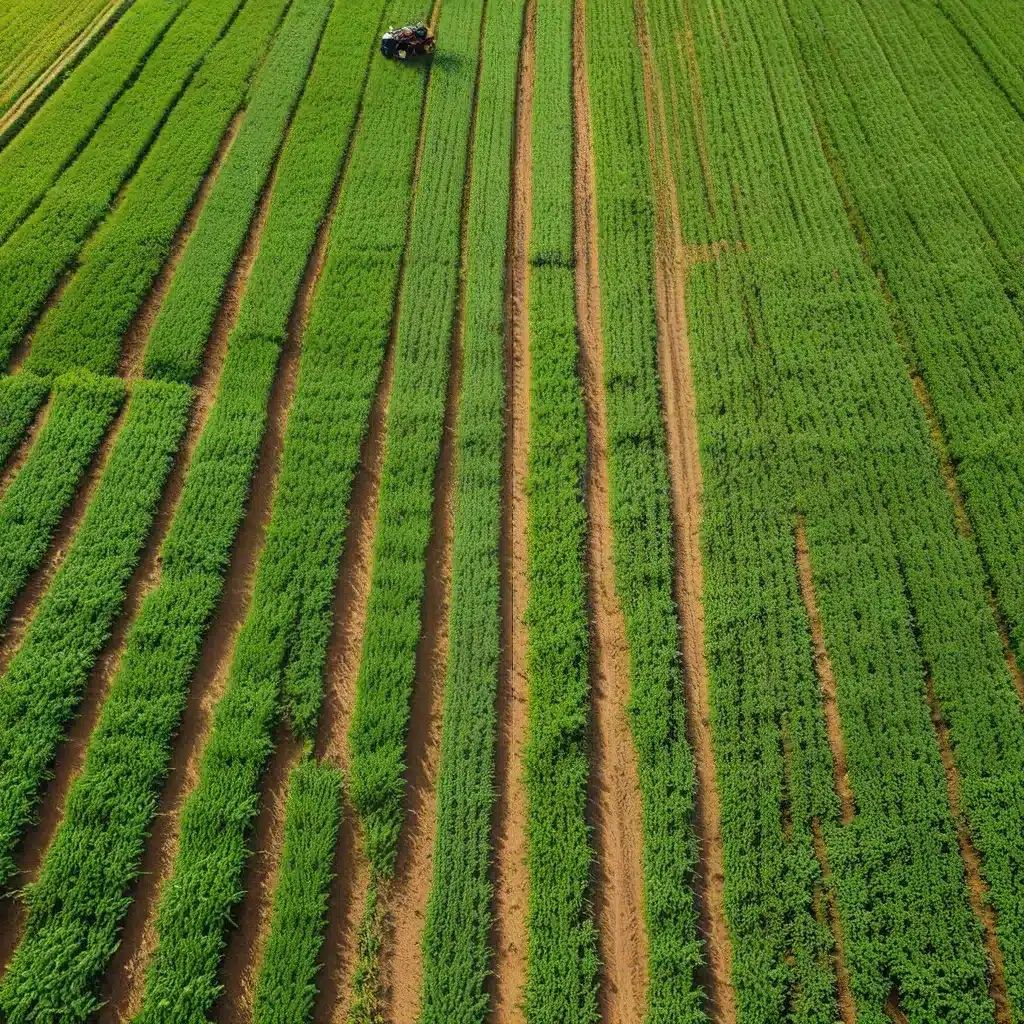
In the ever-evolving landscape of modern agriculture, precision agriculture has emerged as a transformative force, redefining the way we approach sustainable farming practices. At the heart of this revolution lies the integration of sensor networks and IoT (Internet of Things) technologies, which are empowering farmers to cultivate their lands with unparalleled efficiency and environmental stewardship.
Embracing the Power of Sensor Networks
At the core of precision agriculture lies the seamless integration of sensor networks, which enable real-time monitoring and data-driven decision-making. These sensor arrays, strategically deployed across farmlands, collect a wealth of information on soil composition, moisture levels, weather patterns, and plant health. By harnessing this data, farmers can make informed choices about resource allocation, optimizing the use of water, fertilizers, and pesticides.
Sensor-networks.org provides a comprehensive platform for exploring the latest advancements in this field, showcasing how sensor networks are revolutionizing the way we approach agriculture. From GPS-guided machinery to drones equipped with remote sensing capabilities, the technological arsenal at the disposal of modern farmers is truly impressive.
Enhancing Crop Yields and Resource Efficiency
One of the primary benefits of precision agriculture enabled by sensor networks is the optimization of resource utilization. By precisely monitoring the specific needs of each crop and adjusting inputs accordingly, farmers can minimize waste while maximizing yields. Variable Rate Technology (VRT) and soil mapping allow for the targeted application of water, fertilizers, and pesticides, ensuring that resources are used in a judicious and sustainable manner.
This resource-efficient approach not only conserves natural resources but also reduces costs, making farming operations more economically viable. As the global population continues to grow and environmental pressures mount, the adoption of precision agriculture becomes increasingly imperative in ensuring the resilience and long-term sustainability of agricultural systems.
Mitigating Environmental Impact
Sustainable agriculture is not just about maximizing yields; it’s also about minimizing the environmental footprint of farming activities. Precision agriculture, facilitated by sensor networks, plays a crucial role in this endeavor by mitigating the negative impacts of conventional farming practices.
Through the use of GPS-guided machinery, drones, and sensors, farmers can precisely apply inputs, minimizing chemical runoff, soil erosion, and pollution. By reducing the reliance on harmful chemicals and optimizing land use, precision agriculture contributes to the long-term health and resilience of ecosystems.
Moreover, advanced monitoring and management techniques enabled by sensor networks allow for early detection of pests and diseases, enabling targeted interventions and reducing the need for broad-spectrum pesticide applications. This, in turn, helps preserve biodiversity and maintain the ecological balance of agricultural landscapes.
Data-Driven Decision-Making
At the heart of precision agriculture lies the integration of data-driven decision-making processes. By collecting and analyzing data from sensor networks, farmers gain valuable insights into their operations, empowering them to make informed decisions that optimize resource use, increase efficiency, and improve sustainability outcomes.
From adjusting planting densities to managing irrigation more effectively, data-driven precision agriculture practices enable farmers to achieve better results with fewer inputs. This, in turn, translates to cost savings, higher crop yields, and a reduced environmental footprint.
Ensuring Long-Term Sustainability
The adoption of precision agriculture, facilitated by sensor networks, is essential for ensuring the long-term sustainability of farming systems. As the global population continues to grow and environmental pressures mount, the ability to adapt to changing climatic conditions, resource scarcity, and market demands becomes increasingly critical.
By embracing innovative technologies and data-driven practices, farmers can improve resilience and maintain productivity in the face of uncertainty. This, in turn, helps safeguard the future of agriculture for generations to come, ensuring food security and sustainable land use.
Conclusion
Precision agriculture, empowered by the integration of sensor networks and IoT technologies, is at the forefront of a sustainable agricultural revolution. By optimizing resource utilization, mitigating environmental impact, and enabling data-driven decision-making, this transformative approach is paving the way for a more efficient, resilient, and environmentally responsible future in farming.
As the global community grapples with the challenges of climate change, resource scarcity, and population growth, the adoption of precision agriculture becomes increasingly imperative. By prioritizing sustainability and embracing technological advancements, farmers can ensure the long-term viability of agricultural systems, safeguarding the well-being of our planet and the communities that depend on it.
Explore the sensor-networks.org platform to dive deeper into the cutting-edge innovations and real-world applications that are shaping the future of precision agriculture and sustainable farming practices. Together, let us embrace this pivotal moment and cultivate a future where agricultural productivity and environmental stewardship coexist in perfect harmony.